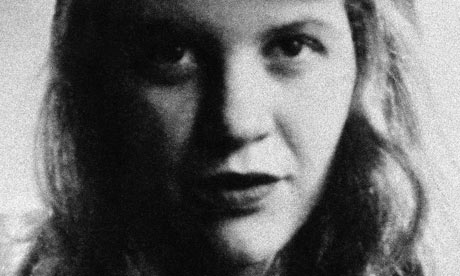
What felt like an early Christmas present arrived in the post this week: the new double CD of classic RSC performances. It's the sequel to The Essential Shakespeare Live, and it's called The Essential Shakespeare Live – Encore. I suspect they wanted to call it Now That's What I Call Shakespeare, but bottled out. Does the RSC do encores anyway? I can't quite see the company trooping off, waiting until the crowd's stamping reaches a climax, then bounding back on to belt out one more touching soliloquy and a quick Hey Nonny Nonny.
But let that be. It's an attempt, in the form of bite-sized audio recordings from productions over the last 50 years, to popularise one of our most under-appreciated cultural resources: the British Library's Sound Archive. The first volume's star turn was a snatch of Paul Scofield's Lear – meaning I finally got to hear the performance that, a decade before I was born, could cause my granny to dissolve into tears just remembering it. Ian McKellen is in wracked form as Lear in the new volume, which also boasts Paul Robeson's strong-timbred Othello and David Tennant's daisy-fresh Hamlet, five decades apart.
Of course, it's not like seeing a play. You get a fragment from a performance, complete with stage and crowd noises, but still it's fascinating to listen to. You can hear the changes, across the decades, in how actors read their lines (more freely these days), and in how the audience reacts (more vocal now). You also get a sense of the glorious plasticity of Shakespeare's material, how much it can change in different hands.
Anyway, if nothing else, it's a great way into the magical world of the Sound Archive, in many ways the British Library's embassy to the world – even more so since it went online (sounds.bl.uk). There are some real gems in there. One of the earliest recordings (quite well known, this – I believe the poet James Fenton does it as a party piece) is of Robert Browning reading How They Brought the Good News from Ghent to Aix in his funny, pinched Victorian voice. He cocks it up and, over the crackling of the wax cylinder, exclaims: "I can't remember mi own vahses!" You can also hear, in his thick Lincolnshire accent, Tennyson reading The Charge of the Light Brigade.
Poets reading their own poems can have a powerful impact on how you react to and even understand their work. Would our feelings about Dylan Thomas's poetry be the same if we didn't have recordings of him reading it? The sonorities of Fern Hill or A Refusal To Mourn the Death, By Fire, of a Child in London are all the richer when spoken by him in his stewed Welsh way.
The BL's Sound Archive isn't the only place you can hear such wonders. There's the brilliant US company Caedmon, which has been making recordings of poets for decades; and the online repository at The Poetry Archive – an admirable project by Andrew Motion, less than a decade old, that seeks to build up a systematic archive of contemporary poets reading their work.
Being able to hear the voice of a major poet is endlessly entertaining: Ezra Pound chants, Wallace Stevens flutes, WB Yeats sing-songs, while Robert Lowell sounds, appropriately, exhausted. Sylvia Plath's voice – with its numbed precision – is simply really, really scary. Frieda Hughes, her daughter, sounds enough like her that I once nearly dived under the table when she took the mic at an awards ceremony.
Poetry performed is a wholly different thing to poetry on the page; and poetry caught in a recording is a subtly different thing again – in that it is reproducible. And that, oddly, feeds back to the experience of reading it on the page.
Once you have heard Alec Guinness performing The Waste Land a couple of times, the opening line ("April is the cruellest month ...") will always come to you in his voice. Conversely, this makes watching Star Wars on Christmas afternoon feel that bit more highbrow. And, for my money, Guinness reads Eliot much better than Eliot reads Eliot – getting across the sense in which, for some of us, the poem comes adrift from its author.
I'm trying to reclaim The Waste Land from Guinness by listening to publishing company Savoy's rival recording; it's by PJ Proby (yes, the very same trouser-splitting rock abomination). Proby sounds pissed out of his mind, which I believe he was. This only adds to the recording's status as a majestic ruin.
That Browning recording was once near-impossible to get hold of. Now, like so many of the glories of the world's cultural past, it's just a few clicks away. Encore, indeed.

